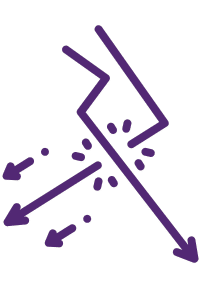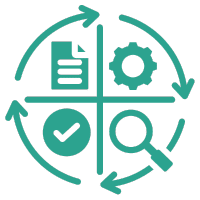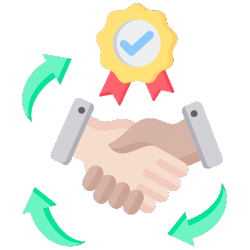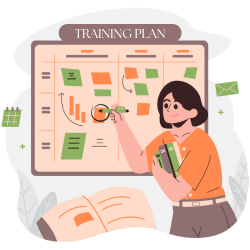How do your managers and leaders measure up?
Burt Nanus, an influential figure in leadership studies, championed a visionary style that remains as relevant today as it was when he first introduced it over 35 years ago. Rather than merely directing teams in a literal sense – issuing orders and dictating goals – Nanus’s visionary leadership style built on a foundation of shared meaning, purpose, trust, empowerment, and commitment.
Leaders – he suggests – should not simply give commands; they should instil a deep sense of direction within their teams, one that everyone can commit to and align with. Today, an effective leader must steer staff and teams through the ever-shifting landscape of challenges and opportunities, whilst fostering a culture of continuous improvement – context in which shared direction and common purpose might just come in handy.

Nanus’s insights encourage leaders to embrace both “head” and “heart” in their approach. Leading from the “head” involves looking ahead, recognising emerging threats and opportunities, and adapting systems accordingly. Leading from the “heart” is about building a shared culture where people feel they are part of something meaningful.
To achieve this balance, Nanus identified seven “mega skills” that any leader can cultivate. These are helpful not only for personal leadership development but also creating teams that are resilient, innovative, and motivated. Here’s a closer look at all seven:
Farsightedness
Farsightedness is the ability to plan for the future while maintaining operational effectiveness in the present. This skill requires leaders to scan the horizon, mitigating for potential threats and preparing to take advantage of relevant opportunities.
Visionary leaders do not allow immediate tasks to obscure long-term goals. They can inspire their teams with a clear, purposeful vision that acts as a shared rallying point. In this way, farsighted leaders don’t just manage day-to-day tasks—they set a direction that everyone can commit to.


Change Mastery
Leaders who excel at “change mastery” can regulate the pace and tone of change within their organisations, ensuring that all transitions, from small adjustments to transformational projects, stay on track. This means communicating clearly and often, minimising the misunderstandings that create unnecessary resistance.
This key trait helps stay embed change as a routine way of working – adaptability which is crucial, whether it’s implementing new technologies, adopting different strategies, entering new markets.
Organisational Design
Every organisation has a unique structure that goes beyond its hierarchy and ‘chart’ – processes, relationships, and methods which shape how all work gets done. Leaders must own the responsibility to shape this structure, supporting the needs of their people and the strategic goals of the business.
Nanus emphasizes that a strong leader doesn’t just work within the existing system but actively refines it to make the organisation more effective. This may mean introducing new ways of working, reshaping team roles, or implementing support mechanisms that enable people to thrive.


Initiative
Taking initiative is one of the most challenging leadership skills to master, yet it’s one of the most powerful. A leader with a strong sense of initiative is decisive, determined, and committed to following through on their word. These leaders are action-oriented, and they don’t wait for the perfect moment to take charge or decide. Initiative breeds a sense of reliability, making team members feel secure in their leader’s direction.
Inspiring Interdependence
Inspiring interdependence is about creating a culture where individuals feel empowered to collaborate, share ideas, and trust one another. Leaders who foster it encourage their team members to find solutions collectively rather than relying solely on directives.
This skill involves knowing when to delegate effectively and when to use a coaching style of leadership to empower. By inspiring interdependence, leaders can build high-performing teams that are motivated and capable of working autonomously toward shared goals.


Integrity
Integrity is the cornerstone of ethical leadership. For Nanus, high standards of fairness, honesty, and transparency are essential for building trust. Leaders who embody integrity set the moral tone from the top, ensuring that decisions are made ethically and that everyone is treated equitably.
Importantly, this means leaders need to be aware of their own biases and preferences, so they can make decisions that are fair and just whilst maintaining close and trusting relationships. Integrity isn’t just about following rules; it’s about consistently demonstrating a commitment to (personal and/or organisational) values and earning the respect of the team.
Anticipatory Learning
The final mega skill, anticipatory learning, reflects a leader’s ability to create a proactive learning culture. Visionary leaders anticipate skills and knowledge gaps before they become critical. They recognise when their teams need additional support and are quick to implement learning opportunities that address them. This proactive approach to learning helps teams stay ahead of the curve, ready to tackle future demands with confidence.

Looking for Leadership Development?
If leadership development is on the agenda at your organisation, you can rely on Eliesha to deliver an impactful programme which engages your managers and leaders from the word go and transfers new knowledge and behaviours straight to your workplace. We will use our 20+ years of experience to support you with:
- Bespoke programmes, designed from scratch to meet your exact objectives and woven around any organisational values or competency frameworks
- Cost-effective pre-designed programmes, with learning objectives and topics chosen from a comprehensive catalogue of existing content
- The investment of your Apprenticeship Levy funds in the form of Level 3 Team Leader and/or Level 5 Operations Manager apprenticeships for existing staff
- Skills development toolkits to support experienced leaders with additional competencies such as Inclusive Leadership or Managing Wellbeing.
- Award-winning microlearning videos to provide a comprehensive library of supportive learning ‘bursts’, ready as and when your managers need them.
To arrange an informal, exploratory chat around your requirements…